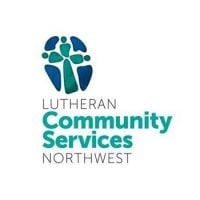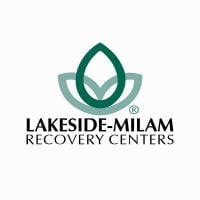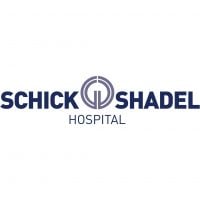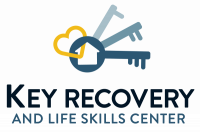Transitional Recovery Program
Drug Rehab Center in Kent, Washington
- Opioid Addiction
- Dual Diagnosis
- Drug Addiction
- Alcoholism
The Transitional Recovery Program is an addiction treatment facility in Kent, WA that offers comprehensive drug rehabilitation and personalized care for individuals suffering from issues such as alcoholism, dual diagnosis and opioid addiction.
Multiple patients have reported Transitional Recovery Program as permanently closed.
Research other rehabs in Kent, Washington, or get help finding an open facility.
Our experts will find you an alternative facility.
(888) 674-0062 24/7 Free, Confidential, Expert HotlineAbout Transitional Recovery Program in Washington
Transitional Recovery Program is a well-known drug treatment center located in Kent, Washington. This facility is dedicated to helping individuals struggling with alcoholism, dual diagnosis, opioid addiction, and drug addiction find recovery and reclaim their lives. Offering a range of treatment services, Transitional Recovery Program is an ideal choice for anyone looking to overcome substance abuse and begin their journey towards sobriety. With a team of experienced professionals and a compassionate, supportive environment, this facility aims to empower individuals to make positive changes and develop the skills necessary for long-term recovery.
Transitional Recovery Program offers a comprehensive range of services and treatment methods for addiction and substance abuse. Their program is specifically designed to address the unique needs of individuals suffering from alcoholism, dual diagnosis, opioid addiction, and drug addiction. Through a combination of evidence-based therapies, counseling, and support groups, individuals are provided with the tools and resources needed to achieve lasting recovery. The facility also offers medically-assisted detoxification for those in need of a safe and supervised withdrawal process. Additionally, Transitional Recovery Program focuses on relapse prevention, offering education and support to help individuals maintain their sobriety beyond their time at the facility.
Genders
Ages
Modality
Additional
Conditions and Issues Treated
Opioid addiction has become a significant health problem in the United States. When a person’s life becomes unmanageable because of an opioid addiction, treatment can help them get sober. Treatment includes medical care and counseling.
“With so many people struggling with opioid addiction, we need more care and attention for those who want to quit. Opioid addicts often take opioids when they experience a painful injury – that’s how the cycle starts! When someone begins taking their medication differently than prescribed or takes an excessive amount of drugs, it means they’re hooked on drugs and in danger of overdosing.
The most successful way to beat this is through detoxing from these types treatments at Transitional Recovery Program in . Most facilities start by using medical support during the process while providing counseling services; rehabilitation comes later on after treatment has been completed successfully.
Levels of Care Offered
This center offers a variety of custom treatment tailored to individual recovery. Currently available are Drug Rehab, with additional therapies available as listed below.
Therapies & Programs
Individual therapy is a form of counseling where you meet with a trained professional one-on-one. Meeting with a therapist in this setting allows for a personal and trusting relationship to be built. This allows the patient to open up about sensitive or private issues they may not feel comfortable discussing in a group. Individual therapy helps identify the root causes of your addiction, which can help prevent relapse.
Couples therapy for drug addiction is a unique form of therapy that allows family members to work through the emotional issues of their loved one’s addiction together. Family members can support each other while learning how to cope with the addiction and encourage healthy changes. The two will work with a therapist to learn how the addiction affects themselves and the relationship.
Family therapy is often done alongside drug treatment to help addicts stay sober. The goal of family therapy for drug addiction is to create an environment where communication can happen without judgment, hostility, or blame. The therapist will sit with the family so they can learn how to communicate differently and provide new tools for dealing with emotions so that people don’t want to drink or do drugs. It’s important for families to focus on relapse prevention plans during treatment so that if the addict feels like they want to use again, they’ll know what steps they need to take together to prevent it from happening again in the future.
Group therapy sessions are another common addiction recovery service. These group sessions typically involve six to 12 addicts who meet regularly with a trained professional for support and guidance.
During these sessions, the group shares their experiences with one another and provides feedback that can help each member avoid relapse or overcome specific obstacles they are facing in their recovery process. With this type of support and guidance, addicts can feel like they are part of a community that understands their struggles and will help them get through the hard times.
Additional Details
Specifics, location, and helpful extra information.
Kent, Washington 98032 Phone Number(206) 205-2370 Meta DetailsUpdated November 25, 2023
Staff Verified
Transitional Recovery Program Patient Reviews
There are no reviews yet. Be the first one to write one.
Kent, Washington Addiction Information
Washington's substance use, abuse, and addiction rates have followed the trends of the rest of the over the past years. Methamphetamine abuse is the biggest threat to Washington. Heroin-related overdoses increased by almost 450% from 2006 to 2016. 20% of all annual deaths in Washington are somehow drug and/or alcohol-related. Drugs are widely abused in Washington because they are easily trafficked in and out of the state.
Drug addiction and abuse are big problems in Kent. In 2013, there were 22,479 people in treatment for a substance abuse problem in the city. The majority of these cases were related to methamphetamine, followed by heroin and marijuana. The most commonly abused substances in Kent include alcohol, marijuana, methamphetamine, heroin, and prescription drugs. The most common types of drug treatment in Kent include inpatient and outpatient treatment programs and 12-step programs.
Treatment in Nearby Cities
- Gig Harbor, WA (16.4 mi.)
- Republic, WA (184.1 mi.)
- Grand Coulee, WA (155.2 mi.)
- Everett, WA (41.1 mi.)
- Sunnyside, WA (128.6 mi.)
Centers near Transitional Recovery Program
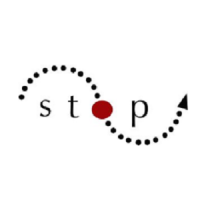
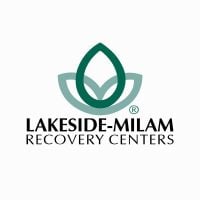

The facility name, logo and brand are the property and registered trademarks of Transitional Recovery Program, and are being used for identification and informational purposes only. Use of these names, logos and brands shall not imply endorsement. RehabNow.org is not affiliated with or sponsored by Transitional Recovery Program.

